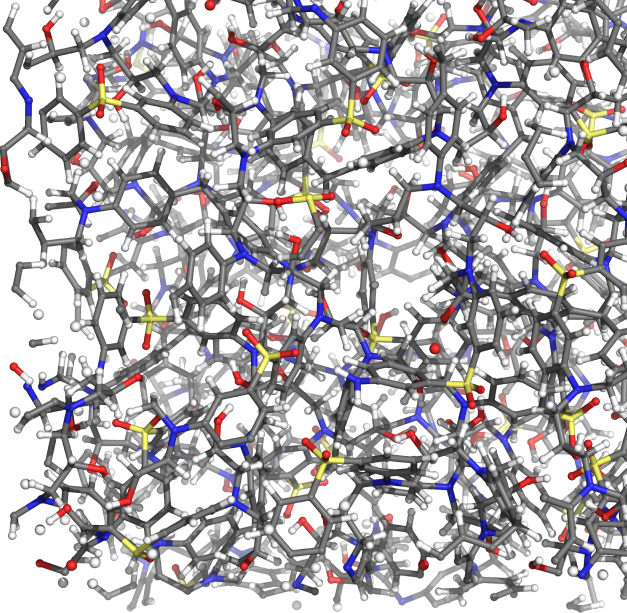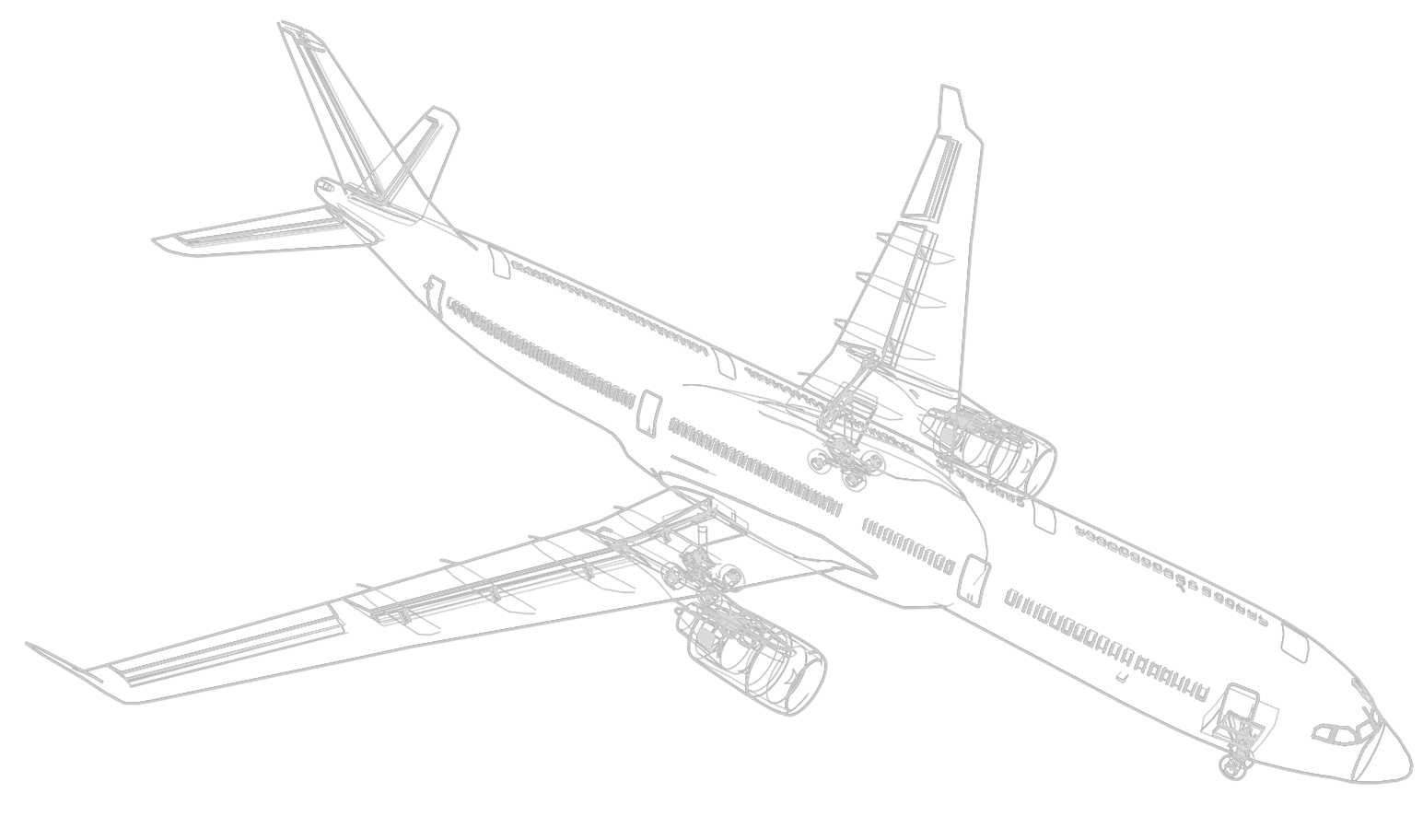

Design and optimize the next-generation of aerospace materials at the molecular level
Leverage industry-leading molecular simulation and machine learning to guide in silico design of novel materials for more lightweight and efficient airplanes and spacecraft.

High-performance sealants and seals
Develop sealants faster with molecular simulations for high-temperature applications in aerospace.
More sustainable batteries for electric aviation
Improve electrolyte and electrode chemistry for safer, lighter, and longer-lasting batteries.
Long-lasting bodies and wings
Uncover and refine lightweight, high-performance composite materials with molecular simulations. Digitally investigate the root causes of failure and defects to optimize manufacturing success.
More efficient electronics
Discover efficient, durable, and low-cost organic electronic materials for lighting and display systems with molecular simulations.
Next-generation paints and coatings
Digitally investigate the curing and reaction chemistries in high-performance coatings for wind shields and bodies of airplanes and space vehicles.
Platform in action
Case studies & webinars
Discover how Schrödinger technology is being used to solve real-world research challenges.
Exploration and validation of polycyanurate thermoset crosslinking mechanisms
Leveraging atomic scale modeling for design and discovery of next-generation battery materials
How to use atomistic simulations of polymers in an industrial setting
Software and services to meet your organizational needs
Software Platform
Deploy digital materials discovery workflows with a comprehensive and user-friendly platform grounded in physics-based molecular modeling, machine learning, and team collaboration.
Research Services
Leverage Schrödinger’s expert computational scientists to assist at key stages in your materials discovery and development process.
Support & Training
Access expert support, educational materials, and training resources designed for both novice and experienced users.

